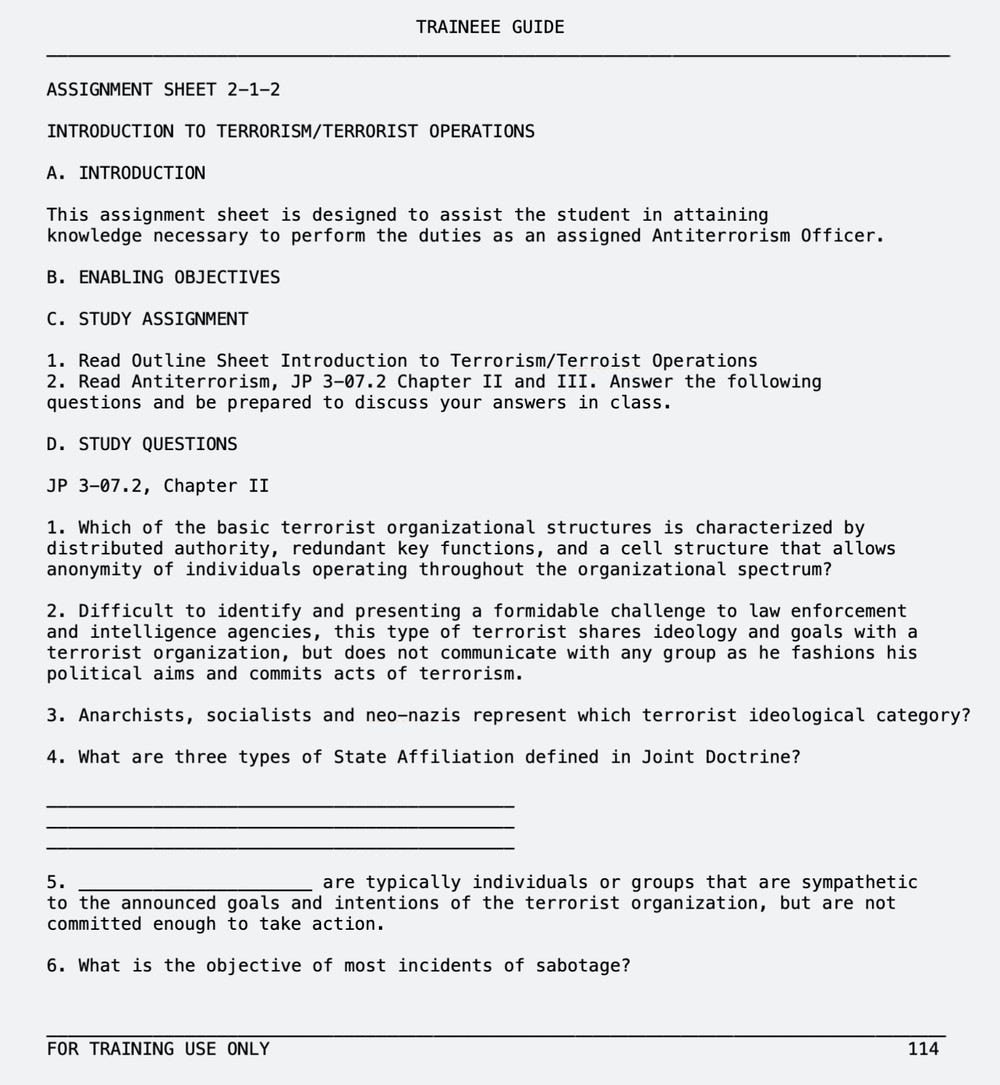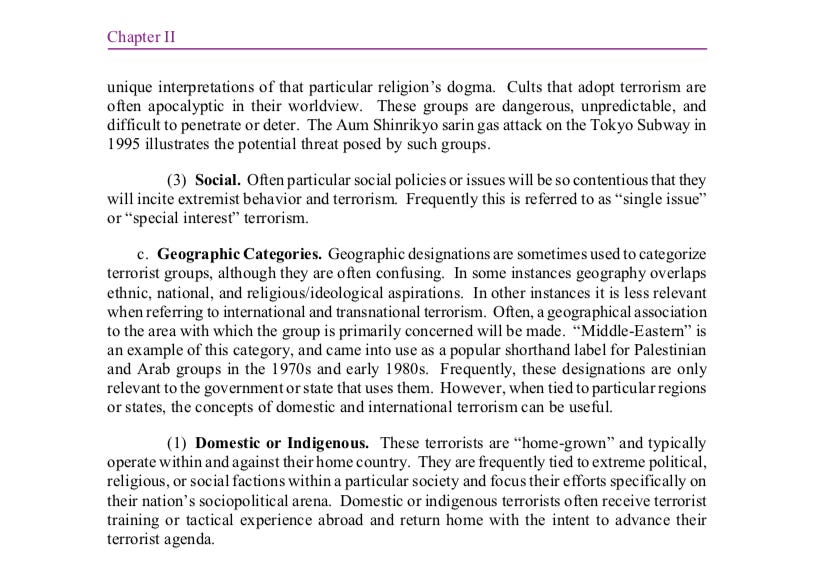The Intercept Fails To Prove Its Story on Alleged Military Targeting Of Socialists
A response to The Intercept's Ryan Grim and Ken Klippenstein.
On Wednesday, we published a report that raised serious questions about a story from left-wing news site The Intercept alleging that it had received an “exclusive leak” showing that the U.S. military is engaged in the targeting of American socialists as part of its anti-terror efforts. Specifically, our evaluation of The Intercept’s story revealed two major issues. First, it showed that the leaked document contained no unique information that wasn’t already made publicly available online by the military itself more than a decade ago. Second, it showed that The Intercept’s interpretation of the information in that document was false and misrepresented.
Following the publishing of our story, the author of The Intercept’s story, Ken Klippenstein, and The Intercept’s Washington D.C. Bureau Chief, Ryan Grim, took to Twitter to defend the story. Unfortunately, these defenses (shown below) completely failed to actually address the issues we raised.
On the question of whether the “leaked” information was already in the public domain, Grim and Klippenstein appear to be fixated on the fact that this specific physical document is new to the public. But whether this document is new is not the issue at stake (after all, plenty of non-public government documents might contain information that’s already public, but their release would not make for news). The issue at stake is whether that document contains any unique information that was not previously made public. And the answer to that question is that it does not. In our report, we showed that not only does the leaked “study guide” not contain any unique, non-public information, but also that the document directly pulls its material from an anti-terrorism policy document (JP 3-07.2) prepared by the Chairman of the Joint Chiefs of Staff under the Obama administration, published in 2010, and available for download on the Homeland Security Digital Library website. As you can see below, that is confirmed by the multiple references in The Intercept’s document to JP 3-07.2 and the specific chapters from which the material is sourced. The study assignment below asks trainees to read specific chapters from the 2010 Joint Policy document and then to answer questions based on that information.
What’s more, because this document is essentially a study guide for the source document (JP 3-07.2), the information in it is not only duplicative but also partial and far less informative than the source document. And that brings us to the second, and arguably more serious flaw in The Intercept’s story.
In their attempts to defend their story, Grim and Klippenstein continue to insist that their document shows that the U.S. military is targeting socialists and socialist ideology as part of its anti-terror program. But a reading of the source document makes it clear that isn’t the case. As we explained in our report:
But what the material is actually conveying (which can be confirmed in Chapter 2 of the document) is that those who commit terror in the name of any political ideology — be it anarchism, neo-nazism, or socialism — simply fall under the category of “political terrorists.” In other words, there is no assertion that socialism or socialists (or anarchy or anarchists) are themselves targets of anti-terror operations, but rather that those who commit acts of terror in the name of those ideologies are considered terrorists (and specifically, political terrorists).
And while it may strike some as odd to include socialism in that list given the lack of socialism-inspired terror attacks in recent memory, socialism has in fact been one of many political ideologies espoused by individuals and groups who have planned or committed violent terrorist acts in the U.S. And this was particularly the case in the 1970s, when left-wing militants made up a plurality of terrorist attacks committed in the U.S.
Furthermore, Grim’s assertion that their leaked document uniquely “links socialism with terrorism” while the source document only provides a “banal description” of socialist ideology is flat out false. Again, The Intercept’s document — a study guide — is simply a condensed version of the material found in Chapter 2 of the source document. In the source document, what Grim calls a “banal description” of socialism is listed in a section titled “Identity Based Terrorism,” where it is grouped together with other established ideological motivations for terrorism. For full transparency on this point, we have embedded that section of the chapter at the end of this article.
Given the extremely viral nature of the story when it was first released and The Intercept’s inability to properly answer these questions, we feel it is incumbent upon them to either address them adequately or make the decision to retract this story. We believe a clarification for the public record is in order.
Please help support our work by subscribing to INQUIRE. Get access to subscriber-only posts and more for $6 a month or $60 a year.












